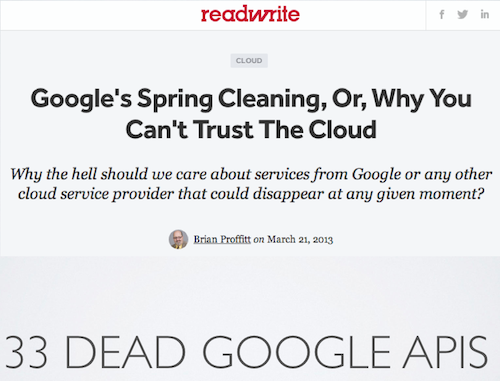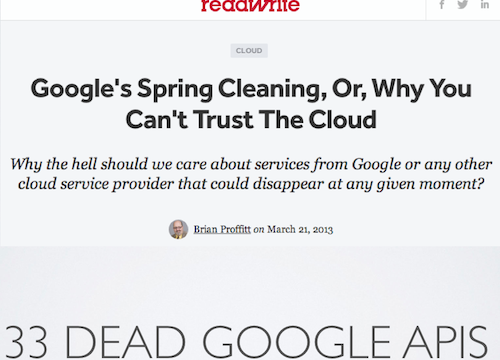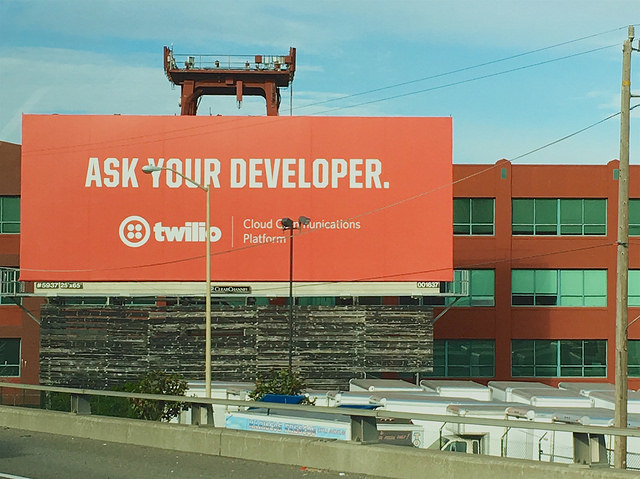There are a lot of factors you could consider when comparing APIs. Obviously, this site exists to explore many of the elements to evaluate. A common place I see people trip up is either blindly adopting or shunning the market or mindshare leader simply for their leadership position. It should be way more nuanced than that.
Do you really want to use that 800 Pound Gorilla’s API?
Back in the early wave of Web APIs, it was much easier to go with the big company. Very few APIs were charging for their value. Google’s budget, for example, was much more likely to outlast a pre-revenue startup’s runway. BigCo API was the safe choice.

The last few years have been a much different story. Google has killed off about a third of the APIs it has released. Once-indie social networks have gone mainstream, IPO’d, and pulled back on their public APIs. The BigCo API is not the no-brainer it used to be.
The Gorilla Index is more than a measure of market ownership. It’s a blended rating that also considers mindshare. Together, these factors pain a more complete picture. There are still reasons you wouldn’t want to choose the highest Gorilla Index.
You May Just Be a Number
The larger the company behind the API, the larger you need to be to get their attention. You may want questions answered before you buy. You may have support requests during and after integration. You may have bug reports or feature requests.
It’s fair to assume you would get more attention from a company that needs your business.
You’re at the Mercy of Their Strategy
Twilio founder Jeff Lawson has a great take on any company that considers its API to be a strategy, often the approach of larger companies. What happens when the API is no longer the prevailing strategy? As Lawson puts it, the strategy writes its last message to developers.
When an API is the company, you get a very different result. It’s more likely that the needs of developers and the company are aligned.
You Aren’t Paying Them (Enough)
Related to both of the above points, any API you rely upon should operate like a business, or have a path to get to that point. It should create enough value so you are willing to pay for it. And it should in turn be able to translate its revenue into enough reason for its company or investors to fund it until the API is profitable.
In other words, think twice about any API not charging or charging too little. And be willing to pay when you’re getting a valuable service.
Do You Gorilla?
Some 800 Pound Gorillas are going to have a lot more of the issues above than others. If the provider is a major company, or owned by one, it increases the likelihood.
Some Gorillas, like Twilio (scored a Gorilla Index of 10 in both SMS APIs and Voice APIs), are in touch with the developer audience. Just take a look at its recent billboards in San Francisco. Yet, as that company continues to grow, it will likely have to acknowledge some of those Gorilla issues.
So, don’t write off the 800 Pound Gorilla API, but do acknowledge its potential weaknesses. Similarly, don’t adopt it just because of its size, because sometimes that works against it.

